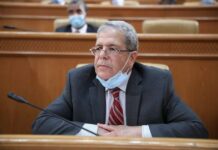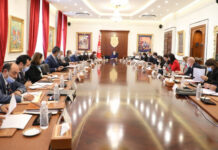It’s still strange. The overwhelming majority of elected officials in Tunisia are the subject of apparent popular opprobrium. Apart from unconditional seids and affidés, popular anger pursues them. Some are even literally hated. It is at the limit a permanent humiliation. However, democratic representativeness is, until further notice, the best modality of democracy. A conventional and internationally recognized system.
7,500 elected officials, a dozen respected people
Summarize. Tunisia has 217 deputies in Parliament and 7,212 elected municipal officials, a President of the Republic elected by universal suffrage and a few dozen elected in some specialized high bodies and mass organizations. That is, in total, a little more than 7,500 elected officials.
However, we hesitate to find among them a dozen people loved or respected. Look for the flaw!
This has hardly always been the case, even during the old regime. Despite this, the intensity of the phenomenon is unparalleled since the legislative and presidential elections of autumn 2019.
The desecration of all that is noble
Alas, under our skies, we have the unfortunate tendency to desecrate everything that is noble, or supposed to be such. Let’s take the word socialism. Since the transformation of the liberal neo-Destour party into the Destourien Socialist Party in 1964, there has been a kind of head-to-tail. Forced collectivization helping, the political, economic and social fiasco has crystallized an epidermal hatred of everything that, directly or indirectly, claims socialism.
Since then, people have swear by liberalism. Here too, the experiment initiated with great pomp in the early 70s of the twentieth century, turned into a bloody nightmare in less than ten years. Witnesses, the thousands of people who fell under the bullets of the Tunisian police and armed forces in January 1978 and January 1984.
Disappointed hopes of 2011
After 2011, it’s the same topo. In fact, from bad to worse. We were promised the advent of a better tomorrow, finally. Yet the situation has literally worsened in two stages and three movements.
Terrorism has settled within our walls, massively, maintained by the Troika in power overseen by the so-called Islamists of Ennahda. Impoverishment has increased. As for corruption, it has become more and more democratic. In the end, we lost a whole decade to find ourselves in the misery of the sixties of the last century. In short, a leap back sixty years. And it’s not over.
Parties defection
Paradoxically, political parties have grown like mushrooms. The country now has 228 parties. That’s a world record. Yet those who are worthy of the name can be counted on the fingers of one hand. Otherwise, they are dubious coteries and groupings. on the right as on the left, courtiers of some whimsical leader and without real scale. Sometimes screens and relays with undeclared designs.
And yet, today, almost all the parties in the square seem sparse. What’s more, it’s dominated by real mummies who have been playing their sad and bad score for decades in the same place.
Indeed, today, the parties seem more than ever empty, inanimate shells. And they also take the bladders for lanterns. Indeed, they believe that there blogosphere replaces the field, they even take it for the field.
Parliament and municipalities at the forefront of hate
Let us be clear. Tunisian political parties suffer from the absence of genuine charismatic, experienced or at least savvy leaders. Many bilingual idiots and illiterates furnish their governing bodies. In addition, they are characterized by their old age, their manifest misogyny and the absence of their anchoring in mass organizations and popular strata. Not to mention the heavy suspicions or grievances of proven corruption that taint them.
In addition to parties, parliamentarians and elected municipal officials contribute to this widely accepted state of affairs. The former spent a good two years bickering over crooks. Forgetting in passing their vocation as legislators. In two years, less than ten bills have been passed, some of which are pending for impracticability or lack of implementing legislation.
As for the municipalities, same topo. The country is dirty, the street furniture dilapidated and poorly maintained, the public services and services degraded. Here too, big and small corruption are rampant.
Bitter observations
Obviously, these are observations. Pollsters would benefit from sticking to the only signs of repulsion and hatred to take the pulse of the state of opinion.
And all these beautiful people are standing still. We jostle at the door of the media to speak, to speak, to speak, to say nothing. Small electoral machines are dormant. To reiterate the same nightmare of elected officials. And reap the feelings of aversion.
Meanwhile, the stakes are growing, the country is falling apart, the economy is bankrupt and Tunisians are exhausted. Look for the flaw!
French article by SBF
Translated by Rifi-JDD











